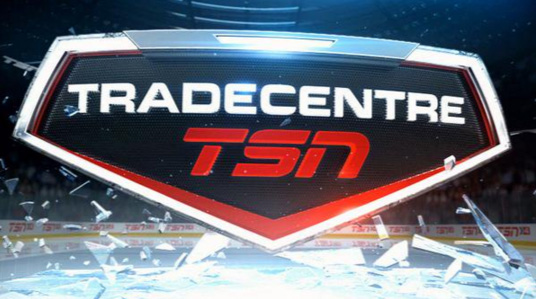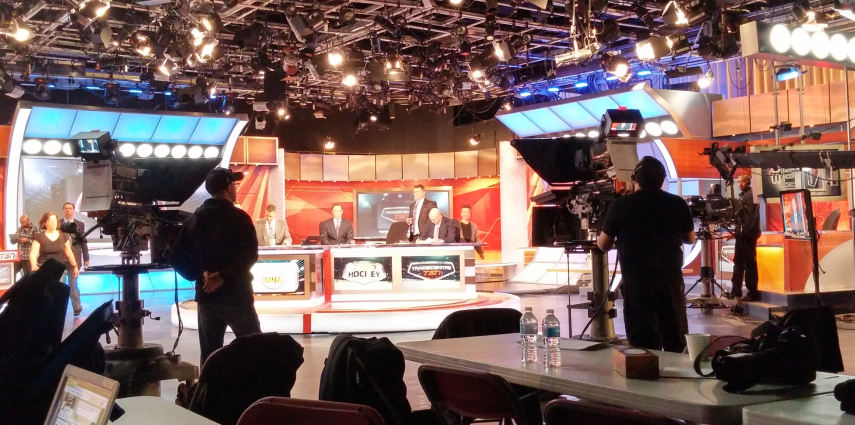Taylor Shold: Tell us about yourself, who are you and what do you do?
John Horn: My name is John Horn and I am a Freelance Producer, Reporter & Host and have been working in the sports broadcasting industry in both TV and Radio for 16 years. I grew up in Vancouver and moved to Toronto in 2007
I do the majority of my work on Live Event Programming at TSN and also dabble in TSN Radio and do contract work for MLB Network, Comcast Sportsnet & the ATP World Tour.
Taylor: How has networking helped your career?
John: Networking has played a huge part in my career especially of late. I have worked for 4 of the biggest companies in the broadcasting industry but last year I decided to start my own company (Around the Horn Media) which allowed me to work for anyone who wanted to hire me. When you are a freelance guy you only work when someone hires you so it is crucial to network. Being in the business for many years I have met many great people. If you work hard, know your stuff, have good attitude and good personality people will recognize this and will be more than happy to either recommend you or in some cases hire you. If it wasn’t for the number of people I know, it could be a tough grind. Recently a former cameraman I worked with contacted me to work for Turner Sports for the NBA All-Star weekend.
Taylor: What have been some of the biggest struggles you’ve faced and how have you overcome them?
John: One of the biggest struggles I have faced is getting people to give you a chance. You may have the best Resume with lots of work experience and some great references but until you get a chance to show what you can do, what you have on paper doesn’t really mean anything.
Make sure you stand out, be creative when you can, think outside the box. What can you bring to the table that other people can’t. If you show you are willing to do whatever it takes and have a good attitude you will get opportunities.
The other struggle in this industry is balancing your career with your family. When you are single working long hours, weekends and holidays isn’t that big of a deal. That changes when you have a family. Many couples in this industry don’t survive because of the pressures, hours and demands. Make sure you don’t get wrapped up in sports 24 hours a day 7 days a week. Know when to take a breather. Get away from it and spend quality time with your wife and kids. They have to put up with a lot and many times you can’t be there when needed. Recognize that and be thankful for their support of YOUR career.
Taylor: If you could go back and tell your 18-year-old self about this business…what would it be?
John: Enjoy the moment. Often times you get so wrapped up in your work you don’t realize how lucky you are to be in this industry. When I first started, I never would have thought I would have had the opportunity to cover 3 Olympic games, Stanley Cup Finals, Grey Cups, Golf Grand Slams, tennis tournaments and the recent Blue Jays run. The countless games I have attended over the years is crazy.
They say at your wedding you should take 5 minutes to look around and soak everything in so you remember the moment. I should have done more of that over the years at sporting events. I do that now and keep all my media credentials as momentos.
Taylor: What advice do you have for someone trying make it in broadcasting?
John: If someone is looking to get into this industry there are two important things you must do. Be patient and do anything. Don’t expect to come out of broadcast or journalism school and expect to be an anchor on a national sports network or be Producing Trade Centre. It takes time. There are people who are on air and in important positions behind the camera for a reason. They have likely put in time as an intern, cut highlights, worked on graphics or helped Nabil Karim choose the right hair product. The more experience you can get working your way up is valuable and will make you better at what you do.
Never say no when you first start out. The job may not be ideal out of the gate and the hours can be long and late. Put in a good effort with a good attitude and it will make you feel good and you will get noticed.
Also, don’t think you know it all. You really don’t know anything. Be a team player not an individual and listen to the people who have the experience. Dressing well never hurts either!




